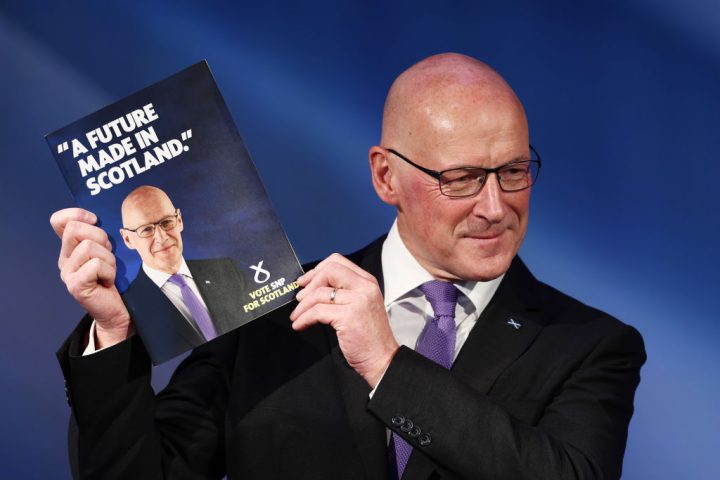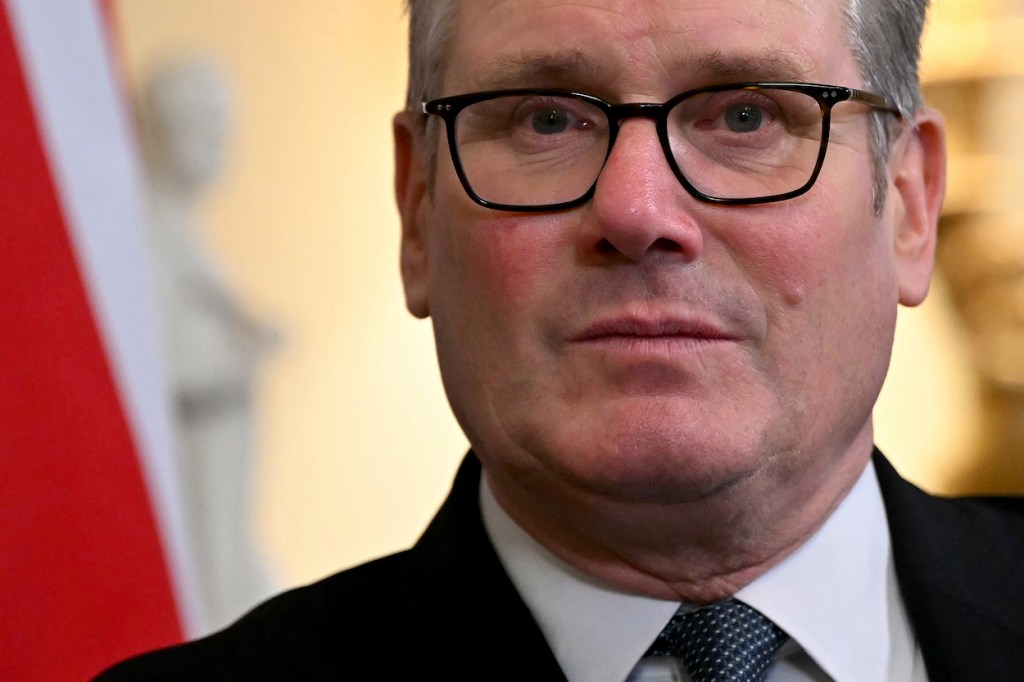Line one page one of the SNP manifesto is, as promised, about independence. If the SNP wins a majority of seats it will ‘be empowered to begin immediate negotiations with the UK government to give democratic effect to Scotland becoming an independent country’. Well in your dreams. No one seriously believes that independence is coming, even in the SNP.
The leadership has been underplaying independence in this election so far; John Swinney hardly mentioned it in the first leaders debate. The nationalists realise that it is better not to call this 2024 general election any kind of ‘de facto referendum’ as Nicola Sturgeon claimed it would be. This is for the very obvious reason that they would lose it.
No one seriously believes that independence is coming, even in the SNP
The latest YouGov poll shows that the SNP is still 4 per cent behind Labour in Scotland, even though the margin has declined. The SNP is in line to lose up to 20 seats. Indeed, if the polls are right, expect Keir Starmer to tell the SNP after polling day: hey, you’ve had your de facto referendum and you lost. Don’t expect another one from Labour.
The big takeaway from this election is that Scotland’s independence moment seems to be over. The wave of support for the SNP which delivered so many landslide election results – in 2015 the SNP won all but three of Scotland’s 59 seats – has waned. And that waning support will not be enhanced by this manifesto which is a transparent exercise in fiscal hypocrisy.
With 800,000 Scots on waiting lists, and record numbers going private, the NHS, not independence, is the number one issue in this election. The manifesto calls on the Westminster government, whoever it happens to be, to increase spending on health by £10 billion, which would deliver an extra £1 billion for Scotland. The Westminster government note, not the Scottish government – which has complete control of the devolved NHS and could increase spending by £1 billion if it chose to.
In fact, the SNP has chosen to do the opposite and squeezed health spending. The Institute for Fiscal Studies (IFS) point out that spending on the NHS in Scotland in 2000 was 22 per cent higher than in England, as a result of the Barnett Formula. In 2020, this had fallen to 3 per cent. The dirty secret of the SNP years is that since 2007 the nationalists have actually squeezed NHS spending to finance other social projects.
Funding is not the problem with the NHS in Scotland. As the IFS also points out, Scotland still has at least a 20 per cent premium in spending on overall public services. The SNP made its choices but now it wants the UK to pay for them. John Swinney has called on the next government to throw in another £6 billion in England to match the higher wages that doctors and nurses earn in Scotland as a result of Humza Yousaf’s more generous pay deals.
‘Why,’ asks John Swinney, ‘should a nurse in Liverpool earn £3,000 less than a nurse in Livingstone?’ The obvious answer is that the Scottish government decided to reward staff rather than clear the patient backlog. More than 150,000 Scots work in the NHS, a block of votes the SNP has assiduously cultivated over the years.
How the SNP has got away with this sleight of hand for years is no mystery. It has done so by blaming England, which is something of a national pastime in Scotland, and also by concentrating political attention on the constitution.
If only Scotland were independent, John Swinney said this morning, the country could rejoin the EU and become as rich as Denmark, Ireland or Sweden. Though, interestingly, even he had to confess that this might take some time. ‘Success is not guaranteed,’ he conceded. But look to the shining uplands. Independence, he said, would mean ‘bairns not bombs’ – the SNP is the last major unilateralist party in the UK – and the end of child poverty. Yet ending child poverty is something the SNP has signally failed to achieve in the last 17 years. People are beginning to notice.
Nationalists insist that nearly 50 per cent of Scots still say they support an independent Scotland in principle. But in practice many have lost any enthusiasm for the only party that can deliver it. Everyone knows that a repeat referendum is not going to happen so there is more focus on what the SNP has done in the here and now rather than in the future. And as the nationalist tide recedes, voters see who hasn’t been wearing a swimsuit.








Comments